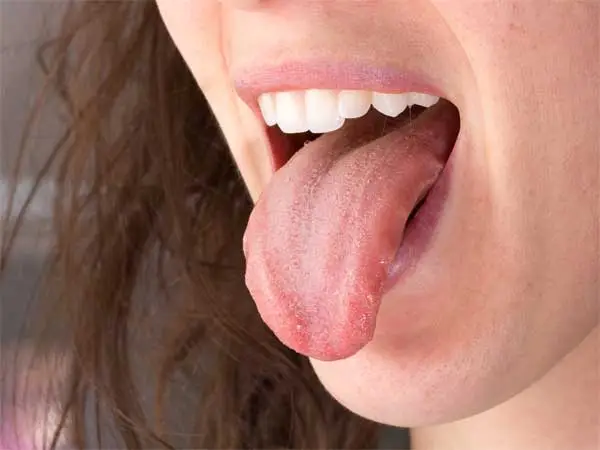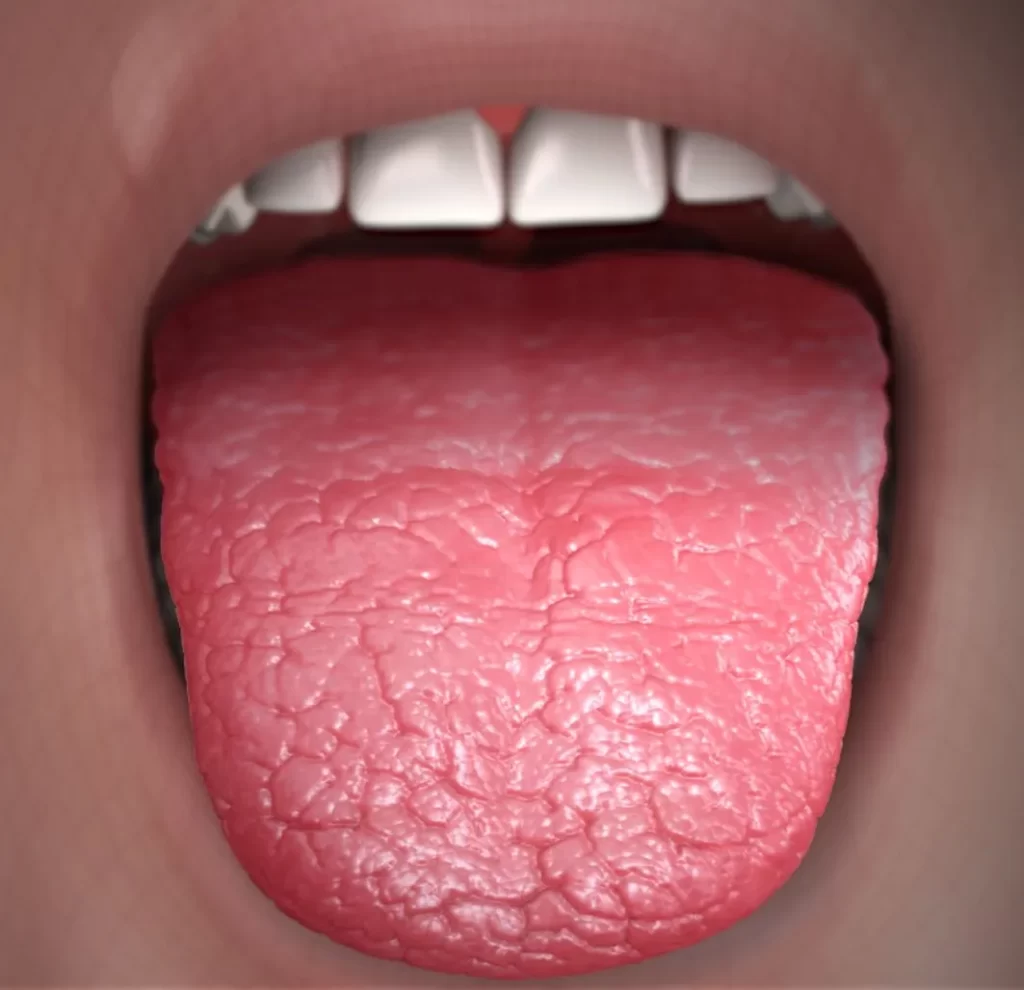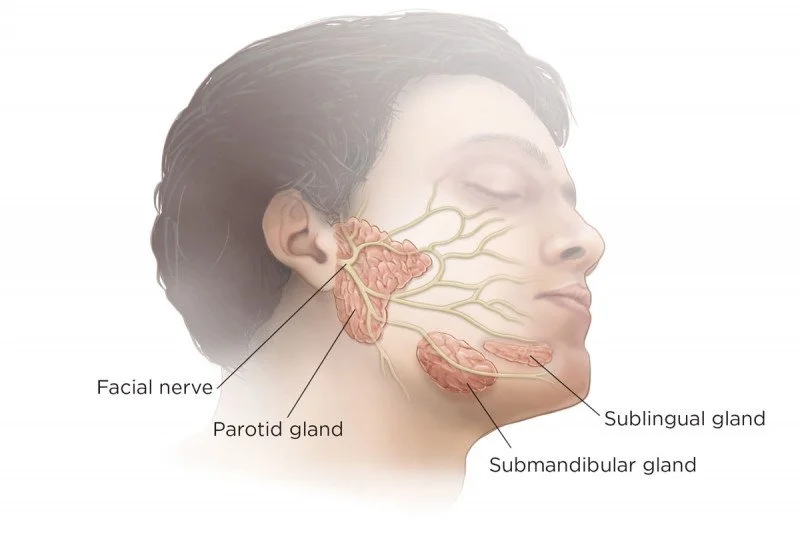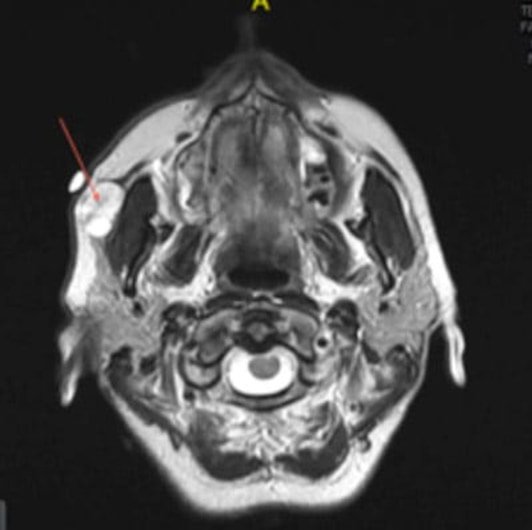
HYPER SALIVATION
- Overproduction of saliva (hypersalivation)
- Difficulties with swallowing (dysphagia)
- Jaw issues
- Inability to effectively close the mouth (malocclusion)
DRY MOUTH / HYPOSALIVATION
Medical Conditions
- Autoimmune Disease
- Sjögren’s
- Diabetes Mellitus
- Sarcoidosis
- HIV/AIDS
- Tuberculosis
- Amyloidosis
- Depression
- Allergies
- Anxiety


SALIVARY GLAND STONES
When flow of saliva through the salivary gland slows down, material
in the duct can form stones. These stones block the outflow of
saliva, causing swelling and pain in the gland.
SALIVARY GLAND TUMOR
- Unexplained painless or painful growth of the parotid gland
- Lump in the cheek, neck, or mouth
- Sensation of fullness of the parotid gland
- Numbness or changes of sensation over parts of the face
- Sudden onset of facial or neck pain
- Twitching or weakness of the facial muscles
- Paralysis of the face
- Difficulty with speech
- Unexplained weight loss, fever, or night sweats

Frequently Asked Questions (FAQ’s)
What are salivary gland disorders, and why should you be concerned?
Salivary gland disorders occur when one or more of your salivary glands become inflamed, infected, blocked, or develop tumors. These glands parotid, submandibular, and sublingual are essential for producing saliva, which aids in digestion, protects your teeth, and keeps your mouth moist. When these glands malfunction, it can lead to discomfort, difficulty swallowing, and an increased risk of oral infections.
How can your ENT team approach salivary gland disorders differently?
Your ENT specialists provide a comprehensive, personalized approach:
Thorough evaluation of your medical history and symptoms.
Advanced diagnostic tools, including imaging and blood tests, to accurately diagnose the condition.
Tailored treatment options, such as medication, surgery, or lifestyle modifications, based on the specific disorder.
Continuous monitoring and follow-up care to ensure optimal management and prevent complications.
This approach ensures that your care is precise, effective, and focused on minimizing risks while maximizing outcomes.
What are the common types of salivary gland disorders?
Sialolithiasis: Formation of stones within the salivary glands, leading to blockage and swelling.
Sialadenitis: Infection of the salivary glands, often due to bacterial invasion.
Sjögren’s Syndrome: An autoimmune disorder causing dry mouth and eyes.
Benign and Malignant Tumors: Growths within the glands that can be noncancerous or cancerous.
Cysts: Fluid-filled sacs that can develop within the glands.
Understanding the type of disorder is crucial for determining the appropriate treatment.
What treatment options are available for salivary gland disorders?
Treatment varies depending on the specific disorder:
Sialolithiasis: Non-invasive methods like massage or hydration, or surgical removal if necessary.
Sialadenitis: Antibiotics for bacterial infections, and supportive care for viral causes.
Sjögren’s Syndrome: Management includes hydration, saliva substitutes, and medications to stimulate saliva production.
Tumors: Surgical removal, possibly followed by radiation therapy, depending on whether the tumor is benign or malignant.
Cysts: Observation or surgical removal, depending on size and symptoms.
Your ENT specialist will recommend the safest and most effective plan for your specific situation.
Can age or overall health affect salivary gland disorder treatment?
Yes, age and health status can influence treatment options and recovery:
Older adults: May have a higher risk of complications and may require modified approaches to reduce surgical risk.
Individuals with chronic conditions: Such as diabetes or autoimmune diseases, may experience more severe symptoms and may need tailored treatment plans.
Discussing these factors with your specialists ensures a plan tailored to your needs.
What are the potential complications if salivary gland disorders are untreated?
Untreated disorders can lead to serious health issues:
Chronic infections: Persistent or recurring infections can lead to long-term discomfort and complications.
Abscess formation: A collection of pus that can cause swelling and pain.
Tumor growth: Untreated tumors can grow larger and may become cancerous.
Dry mouth: Leading to difficulty swallowing, speaking, and increased risk of dental decay.
Early diagnosis and treatment are crucial to prevent these complications.
How can you manage salivary gland disorders at home effectively?
While medical treatment is essential, you can support your health with:
Staying hydrated to promote saliva production.
Massaging the affected gland gently to relieve discomfort.
Using warm compresses to reduce swelling.
Avoiding medications that can reduce saliva flow, unless prescribed by your doctor.
Maintaining good oral hygiene to prevent infections.
These measures help in managing the condition and improving overall health.
When should you seek urgent medical care for salivary gland concerns?
Seek immediate medical attention if you experience:
Severe pain or swelling in the face or mouth.
Fever accompanying gland swelling.
Difficulty swallowing or breathing.
Persistent dry mouth or changes in taste.
Prompt evaluation ensures timely treatment and prevents serious complications.
